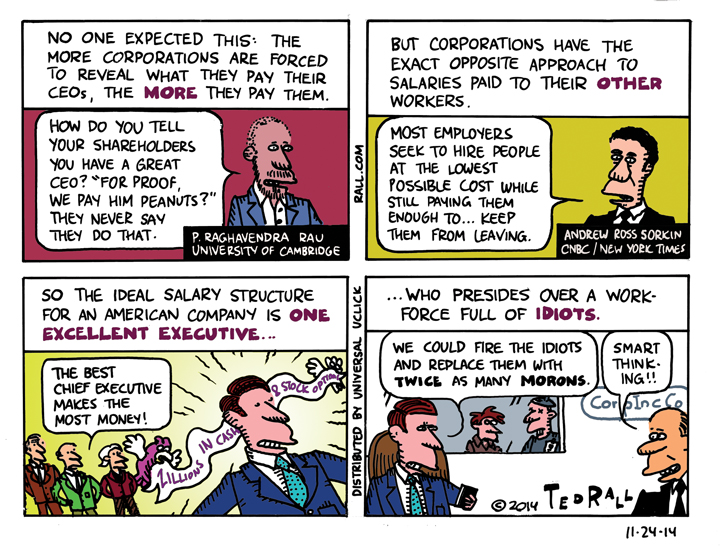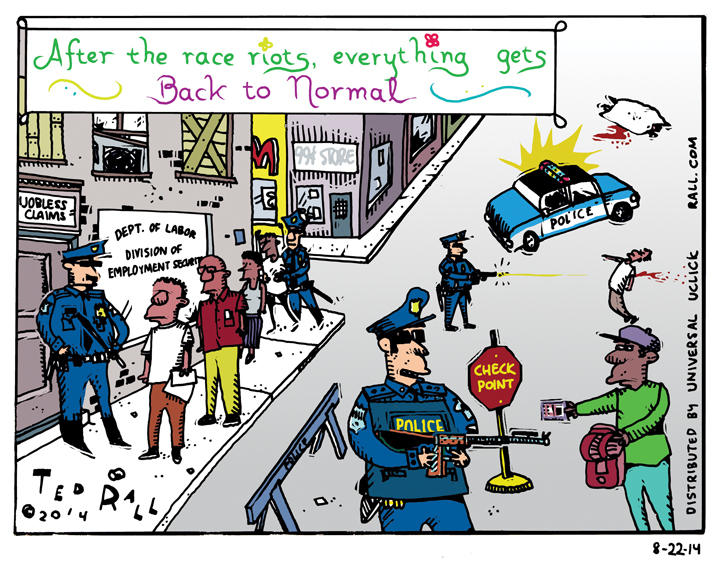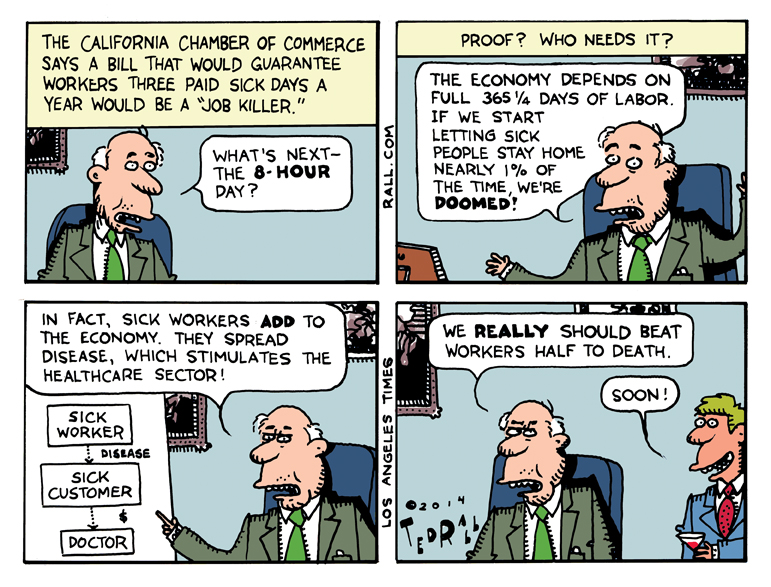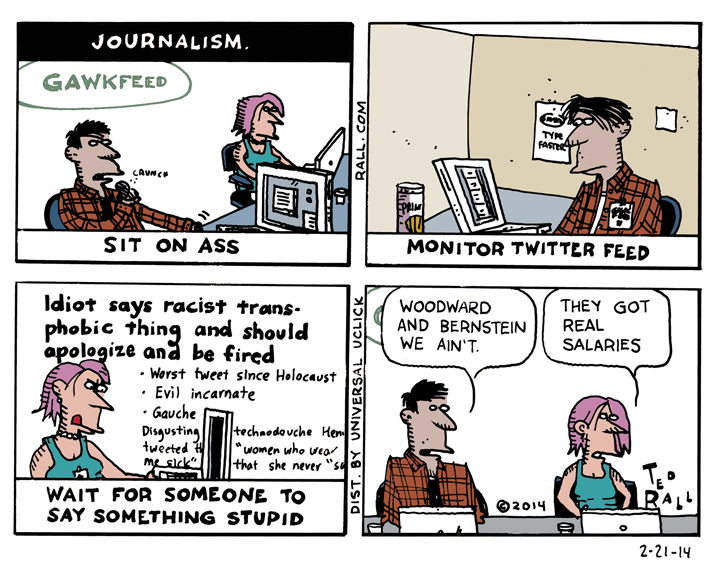
You’ve seen it in movies: gangsters are going to kill a guy. But before they do, they force him to dig his own grave. Who would go along with that? What are these doomed souls thinking? Why, during their final moments alive, doesn’t the victim avail himself of the chance to die defiantly, with dignity, going to his death with the small pleasure of knowing that his assassin will at least be inconvenienced by the disposal of his body?
That was the question running through my head as I read a story that made my blood boil: Disney World in Orlando, Florida recently laid off 250 tech workers and had an Indian outsourcing company supply their lower salary replacements with foreign recipients of H-1B visas. This disgusting practice, which is becoming increasingly common and is the subject of a congressional investigation and at least one lawsuit, is illegal. H-1B visas are only supposed to go to highly educated foreign workers brought to the U.S. to work for employers who can’t find American citizens to do the job — but with 3 out of 4 American techies un- or underemployed, that’s never the case.
Disney, which had a profit of $7.5 billion last year, could easily have afforded to obey federal immigration law.
If found guilty of visa fraud, Disney should be treated the same way that individual criminals get slammed by “three strikes” laws: 250 felony counts? This rogue company is too big not to be failed. It should be nationalized and its executives sent to prison for life.
The part that really got my goat was that Disney pressured its laid-off workers, many of whom had received such glowing performance evaluations that they thought they were being promoted when they were called in to meet with their bosses, to train their replacements. “I just couldn’t believe they could fly people in to sit at our desks and take over our jobs exactly,” one of the H-1B outsourcing victims, an American in his 40s who has been unemployed since his last day at Disney on Jan. 30 told The New York Times. “It was so humiliating to train somebody else to take over your job. I still can’t grasp it.”
It is astonishing how few workplace shootings there are.
Why didn’t the 250 fired workers tell Disney to go to hell, and refuse to train their replacements?
Why did they dig their own graves?
The answer is, they got paid. But not much.
Disney “offered a ‘stay bonus’ of 10% of severance pay if they remained for 90 days. But the bonus was contingent on ‘the continued satisfactory performance of your job duties.’ For many, that involved training a replacement. Young immigrants from India took the seats at their computer stations,” reported the Times.
How much cash are we talking about?
Obviously, there’s the 90 days of pay. Nonmanagerial workers laid off by Disney receive one week of pay for every full year of service. So if you worked 10 years, you’d get 10 weeks severance, plus one additional week – 10% – for the so-called “stay bonus,” for a total of 11 weeks. But to assess the net benefit, you subtract the $275 a week in unemployment benefits most workers receive in the state of Florida, as well as the 10 weeks severance the laid-off employees would have received even if they’d refused to train their replacements.
According to the corporate salary site glassdoor.com, Disney tech jobs at Orlando start at about $61,000 a year. So let’s assume that the average salary of the poor suckers pushed out the door in favor of the new guys from India was $80,000.
Disney paid the laid-off Americans $20,000 – minus income taxes, so more like $15,000 – to dig their own graves.
Look, I get it. Most Americans are living paycheck to paycheck. That $15,000 looks like it’s going to matter a lot when you’re about to lose your job, especially when you are an older worker in technology, a field where age discrimination isn’t merely tolerated, but gleefully celebrated.
At the same time, how much is your dignity worth? That’s the big picture.
Victims of oppression have a responsibility not only to themselves, but to those who are suffering at the same hands, and to the next generation of victims, to resist and throw their bodies on the gears of bloodthirsty corporate capitalism. What if every worker refused, as a matter of course, to train their replacements? The resulting disruption would create a cost for the company.
What if the standard response of a laid-off employee in the United States was not to leave quietly, but to sabotage computers with viruses, trash their office, break as much equipment as possible, and go out kicking and screaming? What if every employer who tried to replace their American workers with outsourced foreigners on fraudulent H-1B visas could count on a big fat class-action lawsuit? Resistance might make some employers think twice before behaving with such disgusting impunity.
Auschwitz survivor Primo Levi wrote that the Nazis’ great triumph in their oversight of death camps was to reduce their Jewish inmates to animals, so that they would turn against one another in their desperate struggle to subsist. Levi was haunted by the horror of what he witnessed, and how easy it was to decivilize human beings. On the opposite side of the spectrum, we celebrate the heroes of the uprisings in the Warsaw ghetto and at Sobibór death camp because, though they knew they were going to die no matter what, they fought to the end.
Comrades! Don’t dig your own graves.
Not for $15,000.
(Ted Rall, syndicated writer and the cartoonist for The Los Angeles Times, is the author of the upcoming book “Snowden,” the first biography of NSA whistleblower Edward J. Snowden. It is in graphic novel form. You can subscribe to Ted Rall at Beacon.)
COPYRIGHT 2015 TED RALL, DISTRIBUTED BY CREATORS.COM


 Freelancers earn less than full-timers. They work longer hours. They’re less economically secure. Because they can’t afford to say no when a possible client calls, their time isn’t their own, even on weekends and holidays. Speaking of which: what holidays?
Freelancers earn less than full-timers. They work longer hours. They’re less economically secure. Because they can’t afford to say no when a possible client calls, their time isn’t their own, even on weekends and holidays. Speaking of which: what holidays?


